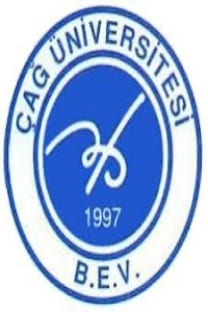HOW TO MEASURE RETURN ON INVESTMENT INTO HUMAN CAPITAL DEVELOPMENT
Öz
This article focuses on approaches to measuring return on investment in the field of human capital development and formulating economic effectiveness of realized projects of human capital development. The overall framework for the presented ideas is formed by Balanced Scorecard and the topic of intellectual capital in relation to creating market value of a firm. Ideas presented in this article contrast some theoretical approaches with actual situation in several organizations. The aim of this article is to underline the need to measure return on investment into human capital development and to indicate how to deal with certain difficulties in this process. The starting point of the article is represented by author’s previous works in theoretical fields, research and their interconnection with current business practice
Anahtar Kelimeler:
human capital development, return on investment, market value of the company, intellectual capital
___
ARMSTRONG, M., (2006). Performance management. Kogan Page, London.ARMSTRONG, M.,(2006). Strategic Human Resource Management. Kogan Page, London.
DVOŘÁKOVÁ, Z. (2007). Management lidských zdrojů. C.H.Beck, Praha 2007.
GORAM, N. O. & ROY, J. - WETTER, M. (2000). Performance Drivers. John Willey, Ltd.
JACKOVÁ. A. & ĎURIŠOVÁ, M. (2008) Finančné şčtovníctvo. EDIS – ŽU v Žiline, Žilina.
KAPLAN, R. S. & NORTON, D. P. (1996) The Balanced Scorecard. HBS Press, Boston .
KNOWLES, S. (2005). The Future of Social Capital. Development Economics Research University of Otago, Conference Thinking Ahead: The Future of Development Economics, Helsinki.
KOUBEK, J. (2007). Řízení lidských zdrojş. Management Press, Praha.ČR
KOZUBÍKOVÁ, Z. (2006). The Selected Methods of the Investment evaluation, In: Krizový manažment 1/2006, FŠI ŽU Žilina, SR
KRIŽANOVÁ, A.& HRIVNÁK, M. (2006). Restructuring of Network industries. In: VADYBA – Management, Nr. 3-4 / 2006, journal of Vilnius University. Lithuania: Faculty of Economics, Vilnius University.
KUCHARČÍKOVÁ, A. (2005). Zvyšovanie hodnoty ľudského kapitálu formou vzdelávania, Habilitačná práca. PEDaS, ŽU Žilina.
TESAROVIČOVÁ, I.: Modern Approaches to Leading an Organization with Focus on Human Capital.
MIKA J.(2009). Sociální a kulturní souvislosti geneze vzdělávání dospělých – andragogiky, Acta Humanica 3/2009, ŽU Žilina, SR
PETROVIČOVÁ, J., ( 2007). Current Level of Marketing Planning in Small and Medium Sized Enterprises in Chosen Branches of Slovakia, In: Economics Theory and Practice II : Conference proceedings Acta Oeconomica, 14 – 15th February, Banská Bystrica: EF, Matej Bel University Slovakia.
PITRA, Z. (2005). Podnikový management. Nakladatelství. Wolters Kluwer, Praha.
TESAROVIČOVÁ, I. (2008). Modern Approaches to Leading an Organization with Focus on Human Capital. Journal of Information, Control and management systems, FRI ŽU, Žilina.
TOKARČÍKOVÁ, E.(2009). Využitie sociálnych sietí v prihraničných regiónoch. In. V. international conference: ,,Jak şspěšně podnikat v příhraničních regionech jihovýchodní Moravy", EPI, Kunovice. ČR
VODÁK, J. & KUCHARČÍKOVÁ, A. (2007) Efektivní vzdělávaní zaměstnanců. GRADA. ČR
VODÁK, J. & STRIŠŠ, J. (2008) Strategic Control – performance management Tool for Increasing Company Competitiveness. Scientific papers, Univerzita Pardubice, seria B.
VODÁK, J. (2004). Rozvoj ľudského potenciálu v modernom podniku. Medzinárodný seminár,EDMAN04, Education for Management, PF MU v Brně, EVIDA Plzeň,VDI BV Dresden, VŠE Praha.
VODÁK, J. (2006). An Aproach to Measuring the Return on Investment in the Area of Human Resources, vedecký časopis Ekonomie a Management, 1/2006, TU Liberec. ČR
VODÁK, J.(2009). Talent Management in selected Slovak Enterprises, Acta Academica Karviniensia 1/2009, Slezská univerita v Opavě, OPF Karviná, ČR.
- ISSN: 1304-8392
- Yayın Aralığı: Yılda 2 Sayı
- Başlangıç: 2004
- Yayıncı: Çağ Üniversitesi
Sayıdaki Diğer Makaleler
FİNANSAL PİYASALARDA HEDGE FONLAR: STRATEJİ VE RİSKLER
ASYA VE ORTADOĞU ÜLKELERİNDE ASKERİ HİZMETTEN KAÇMA SUÇLARI
HOW TO MEASURE RETURN ON INVESTMENT INTO HUMAN CAPITAL DEVELOPMENT
MERSİN’İN EKONOMİDEKİ ROLÜ VE POTANSİYELİ
FİNANSAL PİYASALARDA HEDGE FONLAR: STRATEJİ VE RİSKLER
FAYDA TEMELLİ BÖLÜMLENDİRME: ANTALYA ÖRNEĞİ
Sevda Sahilli BİRDİR, M Şükrü AKDOĞAN
ASYA VE ORTADOĞU ÜLKELERİNDE ASKERİ HİZMETTEN KAÇMA SUÇLARI
